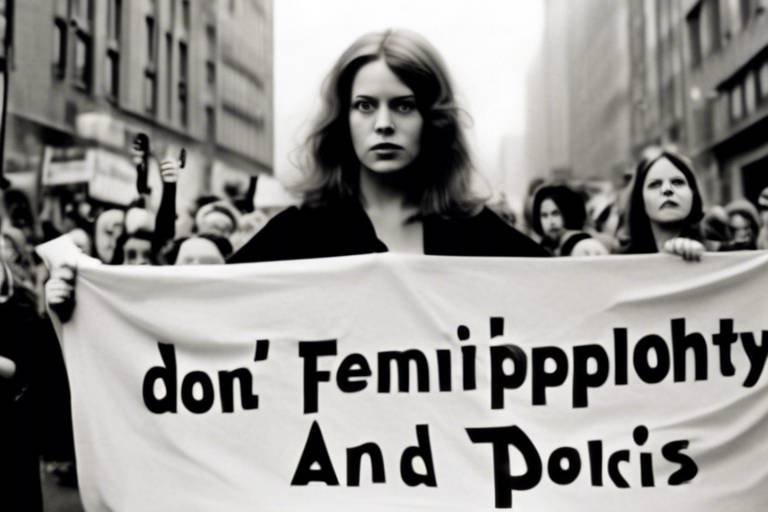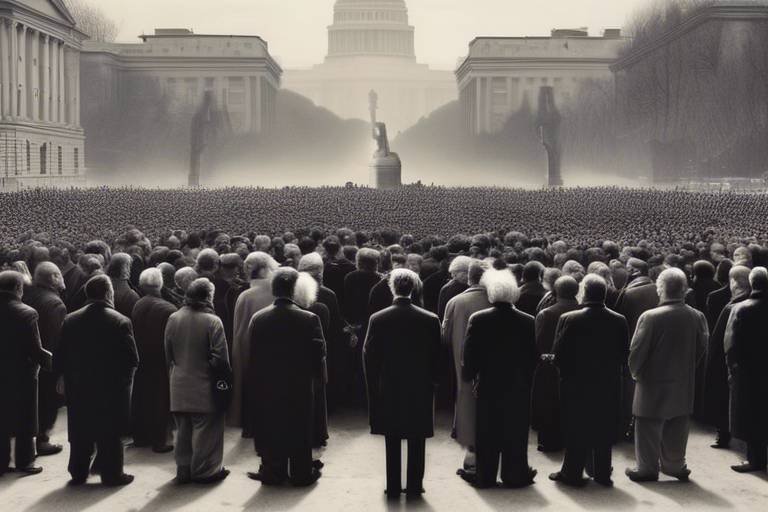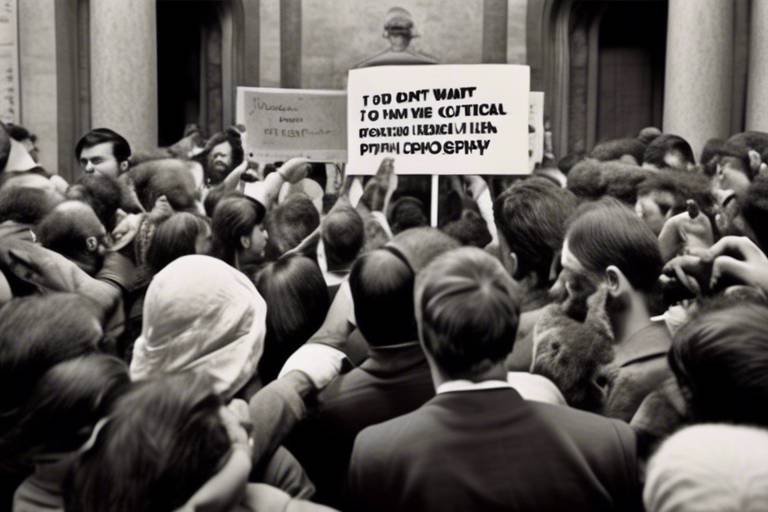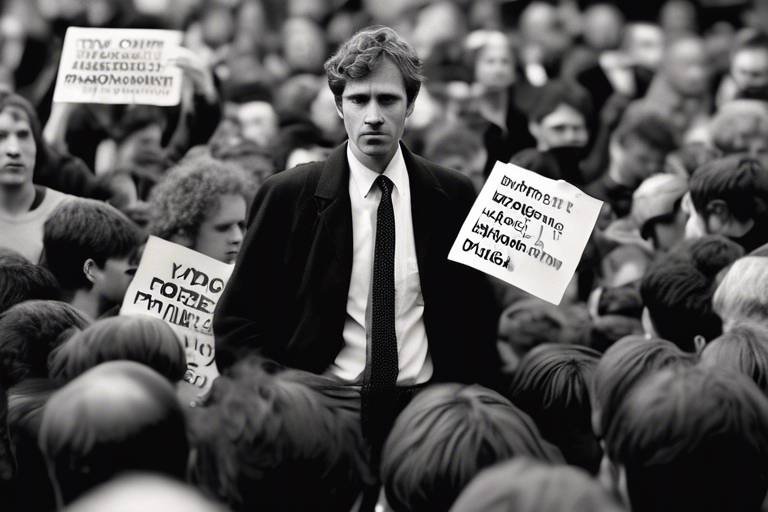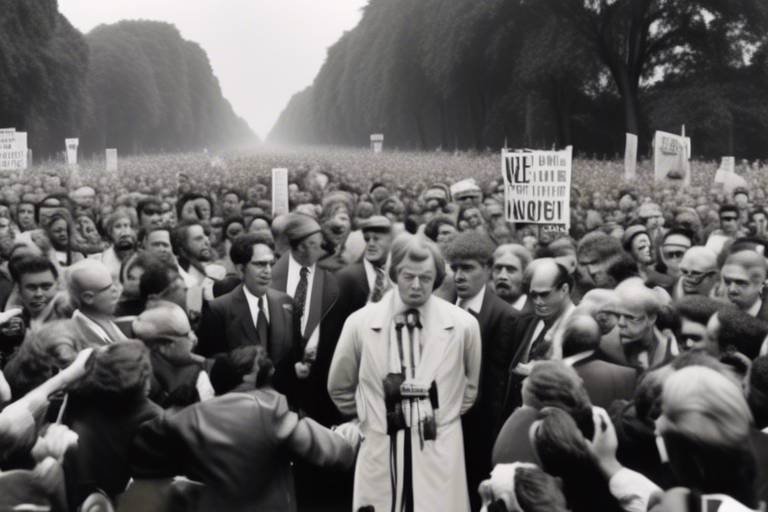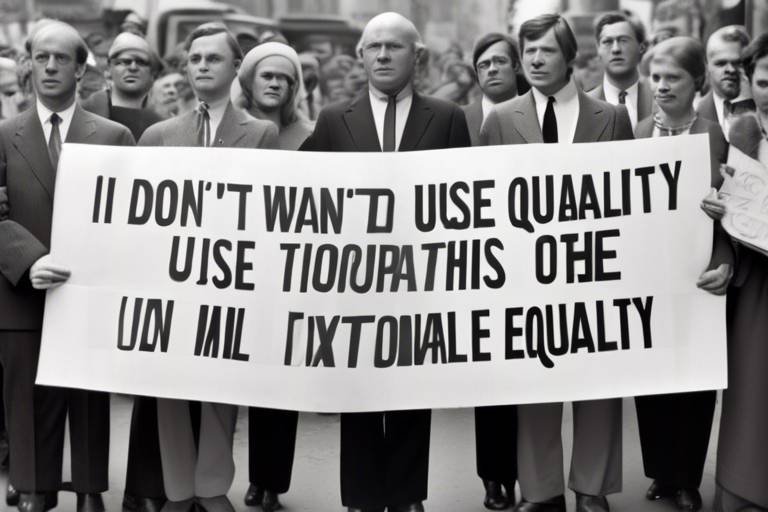Can Philosophy Resolve Political Disputes?
In a world increasingly divided by political ideologies, the question of whether philosophy can resolve political disputes looms large. Imagine a vast ocean of differing opinions, where each wave represents a unique perspective, crashing against the shores of our shared reality. Philosophy, with its rich tapestry of ethical theories and critical thinking tools, offers a lifeboat, potentially guiding us through the turbulent waters of political conflict. But how effective can this lifeboat be? Can the principles of philosophy truly bridge the chasms that separate us?
To tackle these questions, we must first consider the essence of philosophy itself. At its core, philosophy is about seeking understanding and clarity. It encourages us to ask the tough questions: What is justice? What does it mean to be fair? How do we balance individual rights with the common good? By engaging with these fundamental inquiries, we can begin to decipher the complex political landscape we navigate daily.
One of the most compelling aspects of philosophy is its ability to foster dialogue. When we engage in philosophical discussions, we are not merely exchanging opinions; we are participating in a collaborative quest for truth. This dialogue can be a powerful tool in resolving political disputes. It allows us to step outside our echo chambers, challenge our assumptions, and listen to opposing viewpoints. In this way, philosophy acts as a bridge, connecting disparate perspectives and paving the way for understanding and compromise.
Moreover, the application of ethical theories in political discourse cannot be understated. The frameworks of utilitarianism, deontology, and virtue ethics provide essential lenses through which we can evaluate political actions and policies. For instance, utilitarianism asks us to consider the greatest good for the greatest number, which can be invaluable when debating policies that affect large populations. On the other hand, deontological ethics emphasizes the importance of duty and rights, reminding us that some principles should never be compromised, regardless of the outcomes. By integrating these ethical perspectives into political discussions, we can cultivate a more nuanced understanding of the implications of our decisions.
As we delve deeper, we must also recognize the importance of critical thinking in politics. In a landscape rife with misinformation and emotional rhetoric, the ability to analyze arguments critically is crucial. Philosophy equips individuals with the tools to dissect claims, assess evidence, and recognize logical fallacies. This skill set not only enhances our political discussions but also empowers us as informed citizens capable of making reasoned decisions.
In conclusion, while philosophy may not provide a magic wand to erase political disputes, it undeniably offers a robust framework for understanding, dialogue, and ethical decision-making. By embracing philosophical principles, we can foster more productive conversations, challenge our biases, and ultimately work toward a more harmonious political landscape.
- Can philosophy really change political opinions? Yes, philosophy encourages open dialogue and critical thinking, which can lead to shifts in perspective.
- What ethical theories are most relevant in political discussions? Utilitarianism, deontology, and virtue ethics are particularly significant in guiding political decision-making.
- How can I engage in philosophical dialogue? Start by asking open-ended questions, actively listening, and being willing to consider different viewpoints.
- Is philosophy applicable to modern political movements? Absolutely! Many contemporary movements draw on philosophical ideas to advocate for social change.
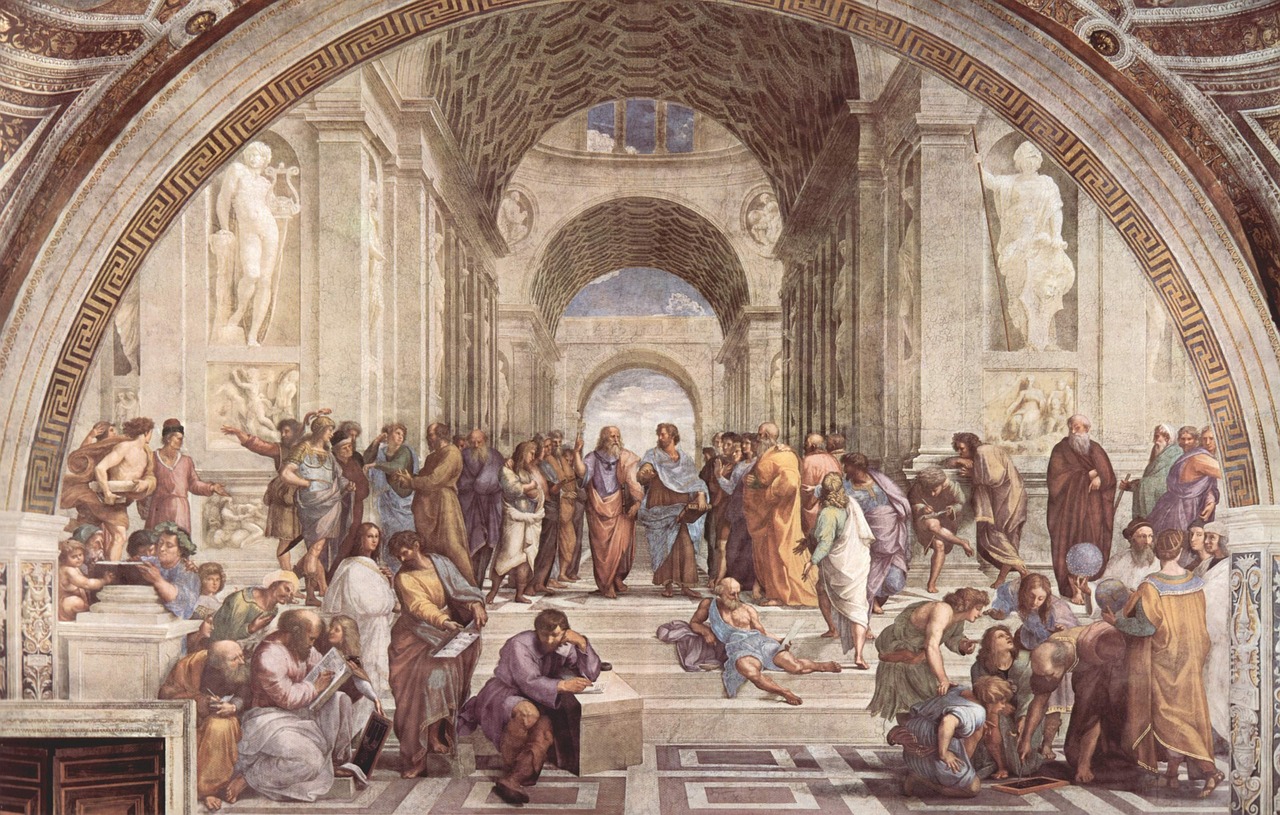
The Role of Ethical Theories
Ethical theories serve as the backbone of moral reasoning in political contexts, acting as guiding lights that illuminate the path toward just decision-making. Understanding these theories—such as utilitarianism, deontology, and virtue ethics—can significantly enhance our approach to resolving political conflicts. Each of these frameworks presents a unique lens through which we can evaluate political actions and policies, ultimately leading to more informed and ethical choices.
Utilitarianism, often summarized by the phrase "the greatest good for the greatest number," emphasizes the consequences of actions. In political decision-making, this theory encourages leaders to consider the overall happiness and welfare of the populace. For instance, when debating healthcare policies, a utilitarian approach would advocate for solutions that maximize the health benefits for the majority, even if it means sacrificing certain individual interests. This pragmatic perspective can often help bridge divides by focusing on collective outcomes rather than individual grievances.
On the other hand, deontology posits that the morality of an action is based on whether it adheres to established rules or duties, rather than its consequences. This ethical framework is particularly relevant in political discourse, where adhering to principles such as justice and rights can guide leaders in making decisions that respect individual freedoms, even when faced with pressure to compromise for the sake of efficiency. For example, a deontological approach to immigration policy would prioritize the rights of individuals, ensuring that their dignity is upheld regardless of the broader political implications.
Then we have virtue ethics, which shifts the focus from rules or consequences to the character of the individuals involved. In politics, this theory encourages leaders to cultivate virtues such as honesty, courage, and empathy. By fostering these qualities, politicians can create a more trustworthy and relatable political environment. Imagine a political leader who embodies these virtues—such a figure would likely inspire confidence and collaboration, making it easier to resolve disputes through mutual respect and understanding.
To further illustrate the impact of these ethical theories on political decision-making, consider the following table that summarizes their key characteristics:
| Ethical Theory | Focus | Key Question |
|---|---|---|
| Utilitarianism | Consequences | Does this action maximize overall happiness? |
| Deontology | Rules/Duties | Does this action respect moral obligations? |
| Virtue Ethics | Character | Does this action reflect good character? |
By understanding these ethical theories, politicians and citizens alike can engage in more meaningful discussions about political issues. Instead of merely arguing over who is right or wrong, they can explore the underlying ethical principles that guide their beliefs. This deeper engagement not only enriches the political discourse but also paves the way for more effective conflict resolution.
In conclusion, the role of ethical theories in politics is not just theoretical; it has practical implications that can transform how we approach political disputes. By applying these frameworks, we can foster a political culture that values ethical reasoning, leading to more just and equitable outcomes for all.

Philosophical Dialogue and Discourse
Engaging in philosophical dialogue is like opening a door to a room filled with diverse perspectives and ideas, where every voice matters. In the realm of politics, this kind of discourse can act as a balm for the wounds caused by division and conflict. When people come together to discuss their differing views, they create a space where understanding can flourish. Imagine a group of individuals sitting around a table, each armed with their own beliefs and experiences, yet willing to listen and learn from one another. What if, instead of shouting over each other, they chose to engage in a meaningful conversation? This is the essence of philosophical dialogue.
At its core, philosophical dialogue encourages participants to step outside their comfort zones and confront the complexities of political issues. It invites individuals to ask questions like, “What assumptions am I making?” or “How might my perspective change if I consider this issue from another angle?” Such reflective questioning is crucial for fostering a culture of open discourse. In political contexts, where emotions often run high, taking a step back to critically analyze one’s own beliefs can lead to more productive discussions.
Moreover, the act of engaging in philosophical discourse doesn't just help in resolving conflicts; it also promotes the development of critical thinking skills. When individuals are trained to articulate their thoughts clearly and to listen actively, they become better equipped to navigate the murky waters of political debates. This process is not merely about winning an argument; it’s about seeking common ground and understanding the underlying reasons behind differing viewpoints. The goal is to transform political discussions from adversarial confrontations into collaborative explorations of ideas.
To illustrate the impact of philosophical dialogue, consider the following key elements that contribute to effective discourse:
- Active Listening: Truly hearing what others have to say can break down barriers and foster empathy.
- Respectful Engagement: Approaching discussions with respect encourages openness and reduces defensiveness.
- Questioning Assumptions: Challenging the status quo can lead to deeper insights and innovative solutions.
Incorporating these elements into political discussions can lead to a richer understanding of the issues at hand. This approach not only enhances individual perspectives but also strengthens the community as a whole. Think about it: when we engage in philosophical dialogue, we’re not just debating policies; we’re building relationships based on mutual respect and understanding.
As we navigate the complexities of modern politics, the importance of philosophical dialogue cannot be overstated. It serves as a reminder that beneath the surface of our political identities lies a shared humanity. By embracing this dialogue, we can work towards not just resolving disputes but also creating a more just and equitable society. After all, isn’t that what we all want at the end of the day?
- What is philosophical dialogue? Philosophical dialogue is a form of discussion that encourages participants to explore ideas deeply, listen actively, and engage respectfully with differing perspectives.
- How can philosophical dialogue help in political disputes? It fosters understanding, promotes critical thinking, and allows for the exploration of common ground, making it easier to resolve conflicts.
- What are the key elements of effective philosophical discourse? Active listening, respectful engagement, and questioning assumptions are crucial for productive discussions.

Critical Thinking in Politics
In the realm of politics, critical thinking serves as a beacon guiding us through the murky waters of debates and discussions. It’s not just about having an opinion; it’s about being able to dissect arguments, analyze evidence, and assess the validity of claims made by politicians and pundits alike. Imagine trying to navigate a ship through a storm without a compass—this is what political discourse often feels like without the anchor of critical thinking. It empowers individuals to sift through the noise, helping them to identify what truly matters amidst the chaos of competing narratives.
At its core, critical thinking involves a few essential skills that are particularly relevant in political contexts:
- Analysis: The ability to break down complex arguments into their constituent parts, allowing for a clearer understanding of the issues at hand.
- Evaluation: Assessing the credibility of sources and the strength of evidence presented in political discussions.
- Inference: Drawing logical conclusions based on the information available, which can lead to more informed opinions and decisions.
- Problem-Solving: Applying logical reasoning to navigate political challenges and propose viable solutions.
Philosophical training is particularly beneficial in honing these skills. By engaging with philosophical texts and ideas, individuals develop a sharper analytical lens through which to view political arguments. For instance, when confronted with a heated debate about healthcare policy, a critical thinker would not only consider the emotional appeals made by various stakeholders but would also seek to understand the underlying principles, historical context, and potential consequences of each proposed solution.
Moreover, critical thinking encourages a culture of open-mindedness. It invites individuals to consider opposing viewpoints, fostering an environment where constructive dialogue can flourish. This is crucial in politics, where polarization often leads to entrenched positions and an unwillingness to engage with differing perspectives. When people practice critical thinking, they are more likely to approach discussions with curiosity rather than defensiveness, which can pave the way for finding common ground.
In conclusion, the role of critical thinking in politics cannot be overstated. It is the bedrock upon which informed citizenship is built. By cultivating these skills, individuals can not only enhance their own understanding but also contribute to a more vibrant and productive political discourse. After all, in a world where misinformation spreads like wildfire, the ability to think critically is not just a valuable asset; it is an essential survival skill for democracy.
As we navigate the complexities of modern political landscapes, let’s remember that engaging with ideas critically is not just an academic exercise; it’s a civic duty. The more we practice critical thinking, the more equipped we become to challenge unjust policies, hold leaders accountable, and advocate for a society that reflects our shared values and aspirations.
- What is critical thinking? Critical thinking is the ability to analyze information, evaluate arguments, and make reasoned judgments based on evidence.
- Why is critical thinking important in politics? It helps individuals navigate complex political discussions, discern credible information, and engage constructively with opposing viewpoints.
- How can I improve my critical thinking skills? Engage with diverse viewpoints, practice analyzing arguments, and seek out philosophical texts that challenge your thinking.
- Can critical thinking help reduce political polarization? Yes, by fostering open-mindedness and encouraging constructive dialogue, critical thinking can bridge divides and promote understanding.
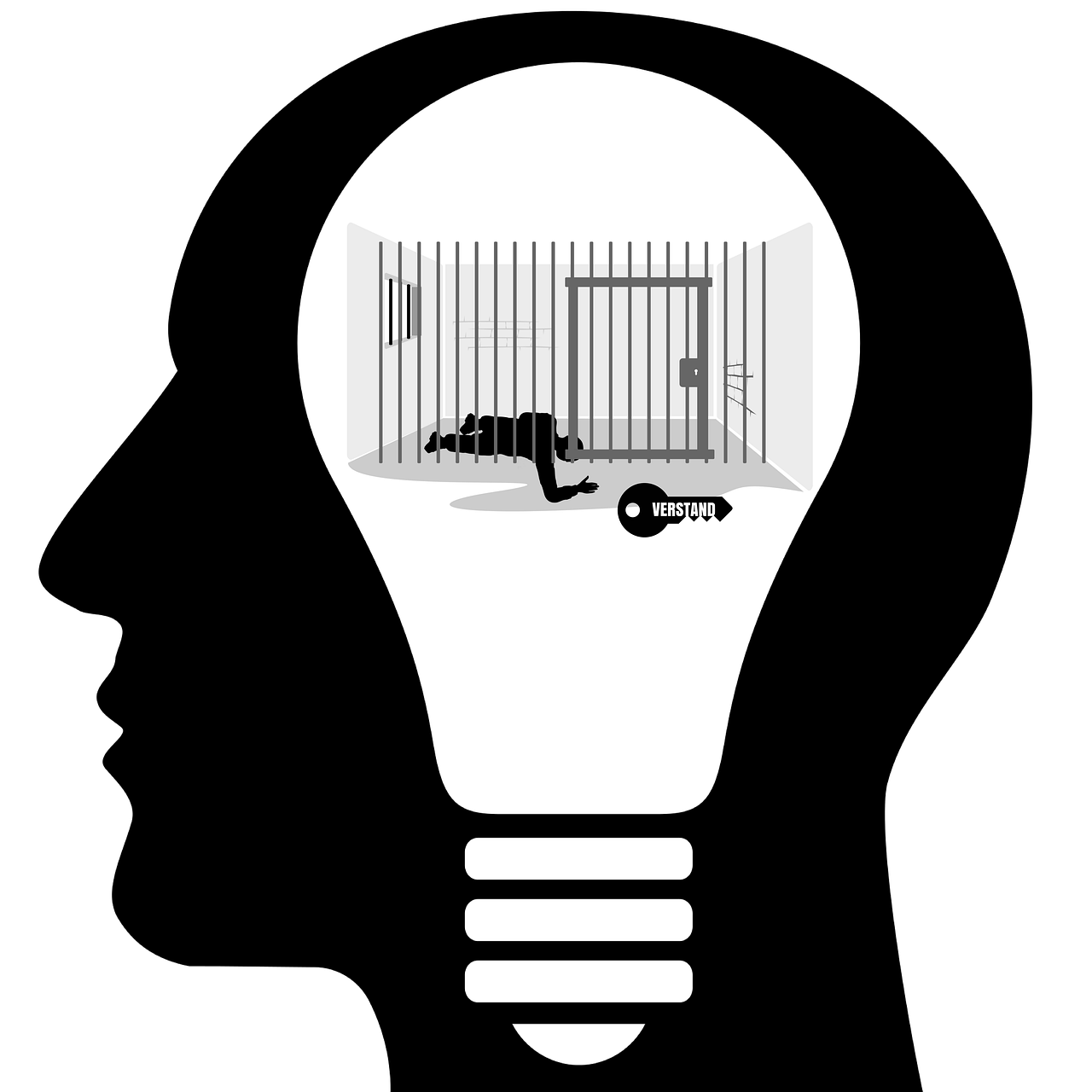
Argumentation and Persuasion
In the realm of political discussions, the art of argumentation and persuasion is not merely a skill; it is a vital tool for fostering understanding and driving change. Think of it as a dance—each participant must know their steps and be aware of their partner's movements to create a harmonious exchange. Effective argumentation involves not just presenting your case but also engaging with opposing views in a way that is respectful and constructive. So, how do we elevate our political conversations through philosophical techniques?
At the heart of persuasive communication lies the ability to construct logical arguments. This means grounding your claims in sound reasoning and evidence. For instance, when discussing a controversial policy, one might use a combination of statistics, anecdotes, and ethical considerations to build a compelling case. Here’s a quick breakdown of how to structure your argument effectively:
| Element | Description |
|---|---|
| Claim | The main point you are trying to prove. |
| Evidence | Data, facts, or examples that support your claim. |
| Warrant | The reasoning that connects your evidence to your claim. |
Moreover, understanding the audience is crucial. Tailoring your message to resonate with your listeners can significantly enhance your persuasive power. This involves considering their values, beliefs, and emotions. For example, if you are advocating for environmental policies, you might appeal to a sense of responsibility towards future generations. By doing so, you create a connection that transcends mere facts and figures, tapping into a deeper emotional reservoir.
Another critical aspect of argumentation is the ability to counter opposing arguments effectively. This is where philosophical training shines, as it equips individuals with skills to critically analyze and respond to challenges. When faced with a counterargument, instead of dismissing it outright, one should engage with it thoughtfully. Acknowledging the validity of some points while respectfully refuting others can strengthen your position and demonstrate intellectual humility.
Furthermore, recognizing the role of rhetorical devices can enhance your persuasive efforts. Techniques such as metaphors, analogies, and repetition can make your message more relatable and memorable. For instance, comparing a political issue to a common experience can help clarify complex ideas and make them accessible to a broader audience.
In conclusion, mastering the art of argumentation and persuasion is essential for anyone engaged in political discourse. By employing logical structures, understanding your audience, countering arguments thoughtfully, and utilizing rhetorical techniques, you can significantly improve the quality of your conversations. This not only leads to more productive discussions but also fosters an environment where differing opinions can coexist and be respected. After all, in the intricate dance of politics, the goal is not to win but to understand and bridge divides.
- What is the difference between argumentation and persuasion? Argumentation focuses on presenting logical reasons to support a claim, while persuasion aims to convince others to adopt a particular viewpoint or take action.
- How can I improve my argumentation skills? Practice critical thinking, engage with diverse perspectives, and study logical structures to enhance your ability to construct and deconstruct arguments.
- Why is understanding the audience important in persuasion? Tailoring your message to resonate with your audience's values and beliefs increases the likelihood of convincing them to accept your perspective.
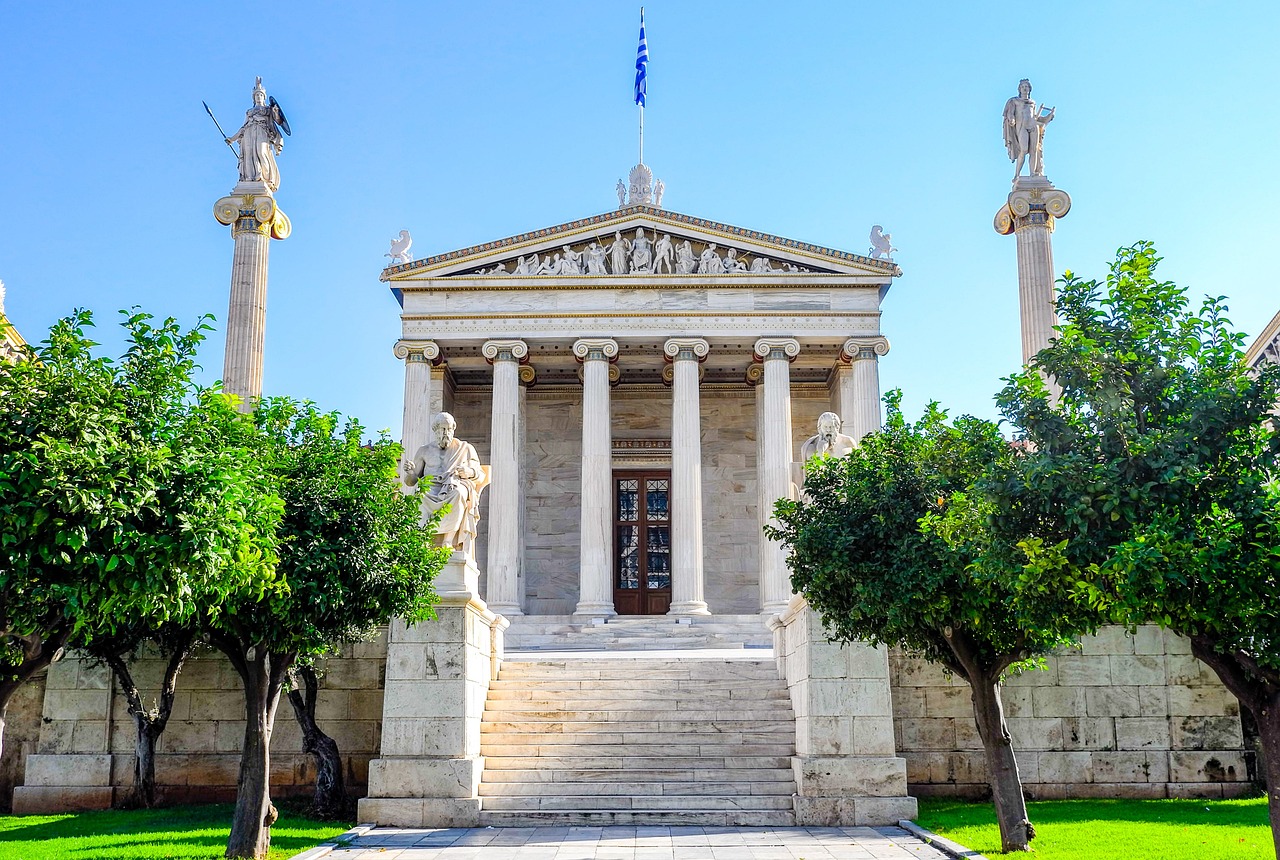
Identifying Biases
In the realm of political discourse, recognizing personal biases is not just a luxury; it’s a necessity. Biases can cloud judgment and warp perceptions, leading to a distorted understanding of complex issues. Imagine trying to navigate a maze blindfolded; that’s what engaging in political discussions can feel like when one’s biases are not acknowledged. Philosophy offers tools for self-reflection that can help individuals peel back the layers of their own prejudices, allowing for a clearer view of the political landscape.
One effective method for identifying biases is through the practice of critical self-reflection. This involves asking oneself tough questions like, "What experiences have shaped my views?" or "Am I dismissing opposing arguments without fair consideration?" By engaging in this reflective process, individuals can start to uncover the roots of their biases, which often lie in personal experiences, cultural backgrounds, or even emotional responses. It’s akin to cleaning a dirty window; once the grime is removed, the view becomes much clearer.
Moreover, philosophical frameworks such as epistemology—the study of knowledge—encourage individuals to examine the sources of their beliefs. Are these beliefs based on solid evidence, or are they simply inherited from societal norms? By scrutinizing the foundations of their opinions, individuals can better understand their biases and how these biases inform their political stances. For instance, someone who has always been surrounded by a particular ideological viewpoint may find it challenging to entertain alternative perspectives. This is where philosophy shines, offering a pathway to broaden one's understanding.
Additionally, engaging in dialogue with others can serve as a mirror, reflecting our biases back to us. When discussing political issues with friends or colleagues, it’s crucial to remain open to feedback. If someone points out a potential bias in our argument, instead of reacting defensively, we should take a moment to assess their perspective. This exchange can illuminate blind spots in our reasoning, enhancing our ability to engage in more objective discussions.
To further aid in recognizing biases, individuals can utilize a simple checklist of questions to evaluate their political views. This checklist can include:
- What assumptions am I making?
- How do my emotions influence my opinions?
- Am I willing to listen to opposing viewpoints?
- Do I seek out information that confirms my beliefs?
By regularly consulting this checklist, individuals can cultivate a habit of critical thinking that not only helps in identifying biases but also fosters a more balanced approach to political discussions. In essence, the journey of identifying biases is much like embarking on a quest for treasure; it requires patience, honesty, and a willingness to dig deep into one’s own psyche.
As we strive for more objective and fair political discourse, embracing the philosophical methods of self-reflection and critical analysis can empower us to engage more constructively with differing viewpoints. In doing so, we not only enhance our understanding but also contribute to a healthier political environment where dialogue replaces division.
- Why is identifying biases important in political discussions?
Identifying biases is crucial because it helps individuals engage more objectively in discussions, leading to more productive debates and a better understanding of differing viewpoints. - How can philosophy help in recognizing personal biases?
Philosophy encourages critical self-reflection and the examination of the sources of one’s beliefs, which can uncover hidden biases that may influence political opinions. - What are some techniques to identify biases?
Techniques include self-reflection, engaging in open dialogue with others, and utilizing checklists that prompt critical thinking about one’s beliefs and assumptions.

Philosophy and Policy Formation
When it comes to crafting policies that resonate with the public and promote fairness, the role of philosophy cannot be overstated. Philosophical principles serve as the backbone of ethical decision-making, guiding policymakers in their quest for justice and equity. Imagine trying to build a house without a solid foundation; similarly, without a philosophical framework, policies can become shaky and ineffective.
At its core, philosophy encourages us to ask the **tough questions**: What is justice? What does it mean to be fair? How can we balance the needs of different groups within society? By engaging with these questions, policymakers can create frameworks that not only address immediate concerns but also consider long-term implications. For instance, a policy aimed at economic development should also contemplate environmental sustainability and social equity.
One of the most significant contributions of philosophy to policy formation is the development of ethical theories that can be applied to real-world scenarios. Consider the following:
| Ethical Theory | Description | Policy Implications |
|---|---|---|
| Utilitarianism | Focuses on the greatest good for the greatest number. | Policies should aim to maximize overall happiness and welfare. |
| Deontology | Emphasizes duty and adherence to rules. | Policies must respect individual rights and moral duties. |
| Virtue Ethics | Focuses on the character and virtues of individuals. | Policies should promote moral development and civic virtue. |
Utilitarianism might urge a government to prioritize economic policies that uplift the majority, while deontology would insist on protecting minority rights, even if it means sacrificing some overall benefits. Virtue ethics, on the other hand, could lead to policies that foster community engagement and personal responsibility. By integrating these philosophical frameworks, policymakers can create more balanced and comprehensive strategies.
Moreover, engaging with philosophical discourse allows for a **dynamic dialogue** among stakeholders. When various perspectives are considered, it becomes easier to identify potential conflicts and find common ground. For instance, a policy designed to address climate change might face opposition from industries reliant on fossil fuels. By applying philosophical reasoning, policymakers can facilitate discussions that explore the ethical implications of environmental degradation alongside economic interests, leading to more innovative solutions.
In conclusion, philosophy is not just an abstract discipline; it is a practical tool that can significantly influence policy formation. By grounding policies in ethical theories and fostering open dialogue, we can work towards creating a society that is not only just and equitable but also resilient in the face of future challenges.
- How does philosophy influence policy decisions? Philosophy provides ethical frameworks that help policymakers consider the implications of their decisions on society.
- Can philosophical debates lead to better policies? Yes, engaging in philosophical discussions encourages critical thinking and helps identify diverse perspectives, leading to more effective policies.
- What are some examples of philosophical theories applied in politics? Utilitarianism, deontology, and virtue ethics are commonly referenced in discussions about justice and policy formation.

Historical Perspectives on Philosophy and Politics
The interplay between philosophy and politics has a rich and complex history, one that has shaped societies and governance structures for centuries. Philosophers have long grappled with questions of justice, power, and morality, often laying the groundwork for political ideologies that continue to influence contemporary thought. From the ancient Greeks to modern theorists, the evolution of political philosophy reveals how ideas can ignite revolutions, reform governments, and inspire movements for social change.
For instance, consider the profound impact of Plato in his work "The Republic," where he envisioned a society governed by philosopher-kings. His thoughts on justice and the ideal state have sparked debates that resonate even today. Plato's concept suggests that those who understand the essence of goodness are best suited to rule, a notion that challenges the very foundations of democratic governance. This raises the question: can wisdom truly govern, or does it risk becoming elitist?
Moving forward in history, we encounter John Locke, whose ideas about natural rights and the social contract laid the groundwork for modern democracy. Locke argued that individuals possess inherent rights to life, liberty, and property, a philosophy that influenced the American and French Revolutions. His assertion that governments are legitimate only when they have the consent of the governed has become a cornerstone of democratic thought. Locke's legacy prompts us to reflect: how do we ensure that our political systems remain accountable to the people?
Another significant figure is Karl Marx, whose critique of capitalism and class struggle introduced a revolutionary perspective on politics and economics. Marx's ideas on the proletariat's role in overthrowing oppressive systems have inspired numerous political movements worldwide. His analysis of class conflict invites us to consider the ongoing disparities in wealth and power: are we witnessing a resurgence of Marxist thought in today's economic dialogues?
Moreover, the contributions of Hannah Arendt cannot be overlooked. Her exploration of totalitarianism and the nature of power in "The Origins of Totalitarianism" provides critical insights into the conditions that foster oppressive regimes. Arendt's emphasis on the importance of political action and public engagement encourages us to ponder the role of citizens in shaping their political landscape: are we, as individuals, doing enough to participate in our democracies?
To encapsulate the historical perspectives on philosophy and politics, we can summarize the contributions of these influential thinkers in the following table:
| Philosopher | Key Ideas | Impact on Politics |
|---|---|---|
| Plato | Philosopher-kings, justice | Influenced ideas of governance and leadership |
| John Locke | Natural rights, social contract | Foundation of modern democracy, inspired revolutions |
| Karl Marx | Class struggle, critique of capitalism | Inspired socialist and communist movements |
| Hannah Arendt | Totalitarianism, political action | Insights on power dynamics and civic responsibility |
As we reflect on these historical perspectives, it's clear that philosophy does not exist in a vacuum; it is deeply intertwined with the political realities of its time. The ideas of these philosophers continue to resonate, challenging us to confront the pressing political issues of our day. Their legacies compel us to engage with the ethical dimensions of our political choices and to strive for a more just society.
In conclusion, the historical relationship between philosophy and politics serves as a reminder that our understanding of governance is shaped by the thinkers who came before us. By studying their contributions, we can better navigate the complexities of our current political landscape and work towards resolutions that honor the principles of justice and equity.
- How has philosophy influenced modern political systems? Philosophy has provided foundational ideas and frameworks that underpin many democratic systems today, emphasizing the importance of individual rights and social contracts.
- Can philosophy help resolve current political disputes? Yes, engaging in philosophical dialogue can foster understanding and critical thinking, allowing for more productive political discussions and conflict resolution.
- What role do historical philosophers play in today's political movements? Historical philosophers offer insights and frameworks that contemporary activists draw upon to advocate for social change and address current political challenges.

Influential Philosophers
Throughout history, various philosophers have profoundly shaped political thought, providing frameworks that continue to influence contemporary political discourse. Their ideas often serve as the bedrock for modern political ideologies, sparking debates that resonate even today. Let's dive into a few of these influential thinkers and explore how their philosophies have impacted our understanding of politics.
First on the list is John Locke, a pivotal figure in the development of liberal democracy. Locke's theories on natural rights and government by consent laid the groundwork for modern political systems. He argued that individuals possess inherent rights to life, liberty, and property, which governments must protect. This idea has not only influenced the formation of democratic governments but also inspired revolutions and movements advocating for individual freedoms across the globe.
Next, we have Karl Marx, whose critique of capitalism and advocacy for socialism challenged the status quo of his time. Marx's analysis of class struggle and economic inequality has inspired countless political movements. His famous assertion that "the history of all hitherto societies is the history of class struggles" invites us to consider how economic factors shape political power dynamics. Marx's ideas continue to fuel discussions on wealth distribution and social justice, making his work incredibly relevant in today's political landscape.
Another significant philosopher is Hannah Arendt, known for her profound insights into totalitarianism and the nature of power. In her seminal work, "The Origins of Totalitarianism," Arendt explores how oppressive regimes manipulate truth and create a climate of fear. Her thoughts on the importance of civic engagement and the dangers of apathy remind us that active participation in politics is vital for the health of democracy. Arendt's warnings about the fragility of freedom resonate strongly in our current political climate, where misinformation and divisive rhetoric abound.
These philosophers, among others, have not only laid the theoretical foundations for political thought but have also provided practical insights that can guide contemporary political action. Their legacies challenge us to reflect on our political beliefs and the systems we inhabit. By understanding their contributions, we can better navigate the complexities of modern political disputes and work towards a more just society.
In conclusion, the ideas of influential philosophers like John Locke, Karl Marx, and Hannah Arendt serve as crucial touchstones in our quest to understand and resolve political conflicts. Their philosophies remind us that politics is not merely a game of power but a reflection of our shared human values and aspirations. As we engage with their ideas, we can foster a more informed and empathetic political discourse, paving the way for innovative solutions to the challenges we face today.
- Who are some other influential philosophers in political thought?
Besides Locke, Marx, and Arendt, philosophers like Plato, Aristotle, and John Stuart Mill have also made significant contributions to political theory.
- How can philosophy help in resolving political disputes?
Philosophy encourages critical thinking, ethical reasoning, and open dialogue, all of which are essential for understanding differing viewpoints and finding common ground.
- Is philosophical training necessary for political engagement?
While not strictly necessary, philosophical training can enhance one’s ability to analyze arguments and engage thoughtfully in political discussions.

Philosophy in Modern Political Movements
In today's rapidly evolving political landscape, the influence of philosophy is more significant than ever. Modern political movements are not just about rallying for a cause; they are deeply rooted in philosophical frameworks that provide a foundation for their ideologies. Think about it: when activists march for climate change, racial justice, or gender equality, they often draw upon philosophical concepts to articulate their demands and justify their actions. These movements utilize philosophical principles to frame their narratives, making them not just political battles, but also moral imperatives.
For instance, the concept of social justice is heavily influenced by philosophical discourse. Activists argue that societal structures must be reformed to address inequalities, and this argument is supported by various ethical theories. Utilitarianism, which advocates for the greatest good for the greatest number, is often invoked to argue for policies that benefit marginalized communities. On the other hand, deontological ethics emphasizes the importance of duty and rights, leading to demands for the protection of individual freedoms and human rights. This interplay of ethical theories provides a rich tapestry for modern movements to draw from.
Moreover, the role of philosophical dialogue in these movements cannot be overstated. Engaging in discussions that challenge existing norms allows activists to refine their arguments and broaden their appeal. For example, the feminist movement has evolved significantly over the decades, incorporating diverse philosophical perspectives to address issues ranging from reproductive rights to intersectionality. This evolution demonstrates how philosophical engagement can lead to more nuanced and inclusive political discourse.
Additionally, we see the impact of philosophy in the way movements are organized and mobilized. Many contemporary activists employ philosophical methods to encourage critical thinking among their supporters. By fostering a culture of questioning and reflection, movements can better equip individuals to tackle complex political issues. This is particularly evident in movements like Black Lives Matter, where philosophy plays a role in understanding systemic racism and advocating for transformative change.
In terms of practical application, consider how philosophy informs the strategies of modern political movements. Activists often engage in persuasive communication, utilizing techniques derived from philosophical argumentation to effectively convey their messages. For example, they might use analogies or thought experiments to illustrate the consequences of inaction on pressing social issues. This approach not only makes their arguments more relatable but also encourages others to engage with the philosophical underpinnings of their cause.
Furthermore, the identification of biases is crucial in modern political movements. Activists are increasingly aware of the need for self-reflection and critical analysis of their own perspectives. By applying philosophical methods, they can recognize personal biases and challenge preconceived notions, leading to more objective discussions within their movements. This commitment to self-examination enhances the credibility of their arguments and fosters a more inclusive environment for dialogue.
In conclusion, the intersection of philosophy and modern political movements is a dynamic and powerful force. By grounding their efforts in philosophical principles, activists can articulate their visions for change more effectively, engage in meaningful dialogue, and inspire others to join their cause. As we continue to navigate the complexities of contemporary politics, the role of philosophy will undoubtedly remain a vital component of social movements striving for justice and equity.
- How does philosophy influence political movements?
Philosophy provides ethical frameworks and critical thinking skills that help activists articulate their demands and navigate complex political landscapes. - What ethical theories are most commonly referenced in modern movements?
Utilitarianism, deontology, and virtue ethics are frequently cited to justify actions and policies aimed at achieving social justice. - Why is philosophical dialogue important in activism?
Engaging in philosophical dialogue fosters understanding, encourages critical thinking, and helps refine arguments, making movements more effective. - How can activists identify their biases?
Philosophical methods encourage self-reflection, allowing activists to recognize and challenge their own biases for more objective discussions.
Frequently Asked Questions
- Can philosophy truly resolve political disputes?
While philosophy may not have a one-size-fits-all solution, it provides essential tools for understanding different perspectives. By fostering critical thinking and ethical reasoning, philosophy can help bridge gaps between conflicting political views, leading to more constructive discussions.
- What role do ethical theories play in politics?
Ethical theories like utilitarianism, deontology, and virtue ethics offer frameworks that help policymakers evaluate the moral implications of their decisions. These theories guide leaders in making choices that consider the greater good, fairness, and individual rights, ultimately influencing political outcomes.
- How can philosophical dialogue improve political discourse?
Philosophical dialogue encourages open-mindedness and critical engagement with opposing views. By promoting respectful discussions, individuals can uncover common ground and develop a deeper understanding of complex political issues, which is essential for resolving disputes.
- What is the significance of critical thinking in politics?
Critical thinking is vital for dissecting political arguments and claims. It empowers individuals to assess the validity of ideas, recognize logical fallacies, and engage in meaningful debates, ultimately leading to more informed political decisions.
- How can one identify personal biases in political discussions?
Philosophy encourages self-reflection and awareness of one’s biases. By employing techniques such as questioning one’s assumptions and considering alternative viewpoints, individuals can engage in fairer and more objective political discourse.
- In what ways can philosophical principles guide policy formation?
Philosophical insights can inform the development of policies that are just and equitable. By grounding policy decisions in ethical frameworks, policymakers can ensure that their actions promote fairness and address the needs of diverse communities.
- Which philosophers have had a significant impact on political thought?
Key philosophers like John Locke, Karl Marx, and Hannah Arendt have shaped political ideologies and practices. Their ideas continue to resonate in contemporary discussions, offering valuable perspectives on governance, rights, and social justice.
- How are modern political movements influenced by philosophy?
Contemporary activists often draw on philosophical concepts to advocate for social change. By utilizing frameworks rooted in philosophical thought, they can articulate their goals more effectively and inspire collective action against political challenges.


